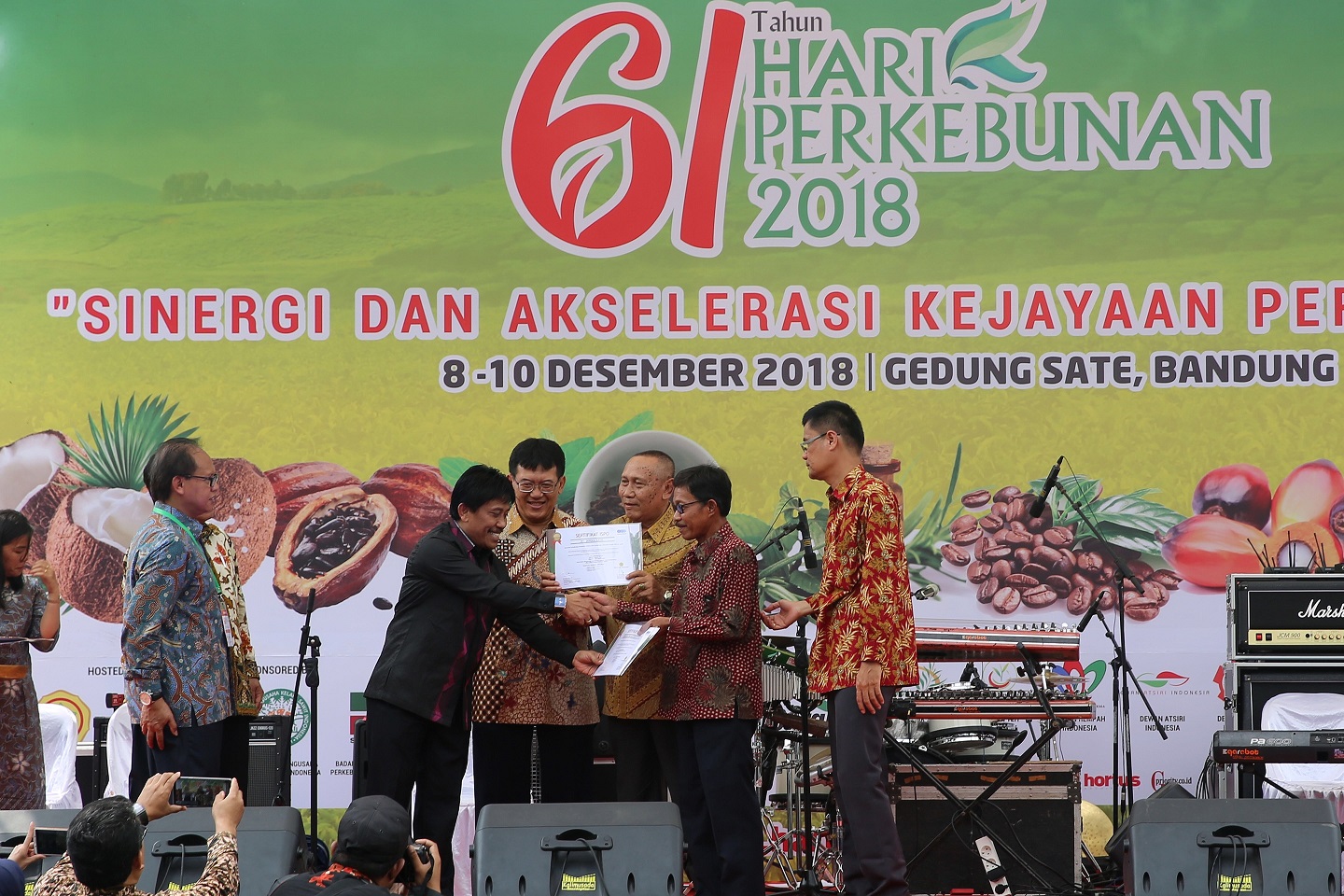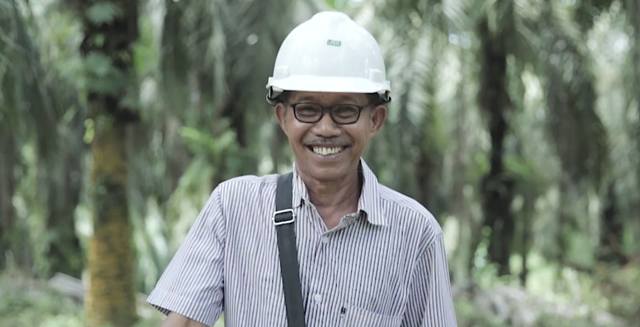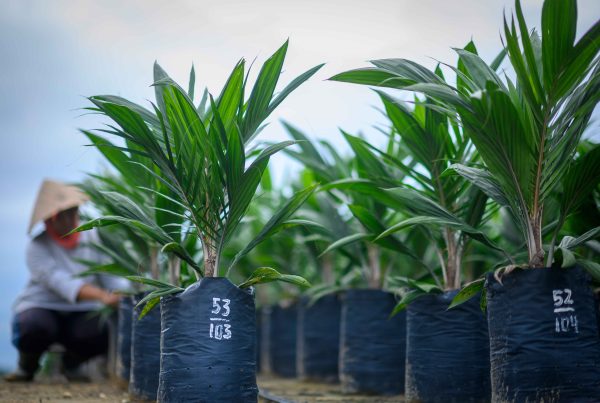For Atan, Head of Bukit Potalo Village Cooperative Unit (KUD) in Ukui district, Pelalawan Regency, Riau, there is nothing more satisfying than seeing the members being so enthusiastic about obtaining the Indonesian Sustainable Palm Oil (ISPO) certification.
The group consists of 247 oil palm farmers belonging to 10 farmer groups who collectively manage 494 hectares of oil palm plantations, all of whom have been partners with Asian Agri since 1994.
The determined group managed to gain ISPO certification in 2018, after fulfilling all the terms and conditions required for it.

Atan said that he was extremely hesitant when Asian Agri first informed him that KUD would become an ISPO certification candidate back in 2017.
“The smallholders here knew nothing about sustainability back then. They were used to managing the plantations the traditional way,” said Atan.
“Obtaining certification was a really long and complicated process. We were all confused and did not know what to do. Thankfully, we had the full support of Asian Agri,” he said
Atan said the hardest part was convincing the smallholders to take part in the whole certification process. They really did not care about certification at first, and were afraid of the required changes.
“Trying to make 10 farmer groups implement a new set of methods in managing their plantations is not a simple task,” Atan pointed out, with a grin.
But the challenges only strengthened Atan and the rest of his team. To them, anything can be overcome with good cooperation and consistent effort.
With the help of Asian Agri, they worked tirelessly to encourage the smallholders to take part in training programs organised by the company. Asian Agri also supported them with technical assistance to carry out good agricultural and plantation management practices.
To gain ISPO certification, smallholders need to meet six principles. To begin with, their plantations have to be legally owned and managed. Environmental monitoring must also be carried out in running their plantations, with no use of fire. The smallholders must hold environmental permits and ensure that biodiversity is protected in their plantations.
The smallholders also have to ensure they comply with health and work safety standards, social responsibility, community empowerment and continuous improvement.
KUD Bukit Potalo managed to meet all of the standards within a year – a feat which Atan describes to be rather unbelievable.
“This is the first cooperative which comprises of local oil palm smallholders which has managed to obtain the certification. All of us originate from here, from Ukui. This is way to us, this certification is our pride.
“It is proven that we are capable of implementing better oil palm plantation management practices,” he said.
“As smallholders, we are aware of our roles as the main actors of upholding sustainable oil palm practices,” Atan added.
KUD Bukit Potalo’s ISPO certification was granted by the Indonesian government’s Sustainable Palm Oil Initiative (SPOI) through the Ministry of Agriculture.
Atan and the other smallholders are fully aware that the certification does mean they are shouldering more responsibility now.
“We cannot allow the quality of our oil palms to degrade now. We need to constantly strive to be better, to work better,” he said.
“We are so proud of what we have achieved, the result of our collective efforts. We also hope that our success can inspire and motivate other fellow oil palm farmers to go through the same journey.
“Implementing sustainable plantation practices and gaining certification is not easy, but it is worth the hard work,” Atan said.
KUD Bukit Potalo’s achievement is a positive result of partnership and collaboration between various stakeholders in the palm oil industry.




